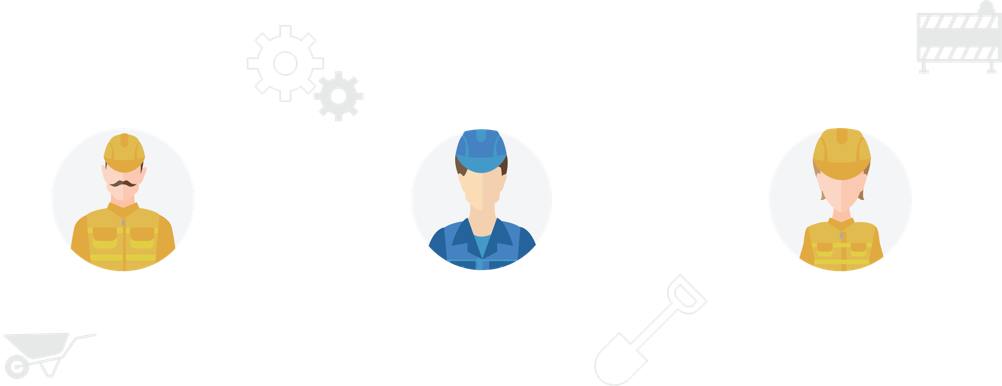
Pattern Makers make wood, plastic, metal, plaster of paris, or polystyrene models to produce castings. Mould Makers then use use them to form a cavity in the sand, into which molten metal is poured to form a casting. Patternmaking is divided into two branches: wood patternmaking and metal patternmaking.
Job Related Skills, Interests and Values
- Reading and interpreting blueprints; planning and making a layout for a pattern from a mechanical drawing of the finished article
- Calculating shrinkage and allowances for machining; converting these dimensions to exact tolerances
- Working by hand or with hand and power tools; operating woodworking and other machines
- Making metal patterns from a casting made by a wood master pattern
- Machining castings, then filing, scraping, and polishing them to meet exact dimensions
- Finishing the pattern by sanding and coating with lacquer to a fine smooth finish
- Working on a variety of tasks that require creativity and great precision
- Acquiring and applying knowledge of wood, machining processes, and machine design
What Preparation and Training Do You Need?
- Secondary school diploma; math, chemistry, physics, and shop courses are assets
- Completion of an 8,000-hour apprenticeship, including on-the-job and in-school training
- Exam to obtain Certificate of Qualification
What's Your Future as a Pattern Maker (443A)?
- Full-time, indoor work; may be standing or sitting at a bench
- Often work with engineers and drafters
- Industries for employment include aircraft and auto manufacturers, shipbuilding, and
machine and parts manufacturers
Wage Rate
Apprentice wage increases with skill and experience. Fully qualified workers earn an average of $23.00 per hour.
Self-Rating
Pattern Maker (443A)
| Ask Yourself: | Yes | No |
|---|---|---|
| Do you enjoy working on a variety of tasks requiring creativity and ingenuity? | ||
| Do you have a good eye for detail, and the ability to spot flaws? | ||
| Do you like working with numbers, and are you precise and accurate at it? | ||
| Are you able to follow Health & Safety guidelines? | ||
| Do you enjoy learning about new technology and materials? | ||
| Would you enjoy interacting with site supervisors, customers, suppliers, co-workers and other tradespeople to get the job done? | ||
| Do you have excellent time-management skills? Are you an organized person? |
If you checked YES to the majority of these questions, a career as a Pattern Maker (443A) may be for you!
You might want to look at these similar trades as well;
- Mould Maker
- Tool and Die Maker
- Machinist
- Tool Designer
- Engineer
Tool & Gauge Inspectors inspect, test, and adjust new and reworked tools, dies, jigs, fixtures and gauges. To become a Tool and Gauge Inspector, you are likely already working as a Tool & Die Maker.
A Residential & Commercial Painter/Decorator (404C) applies decorative and protective finishes to various surfaces in residential and commercial settings. An Industrial Painter/Decorator (404D) works in commercial and industrial settings to prepare a variety of surfaces prior to applying protective finishes, including paint, high performance coatings, waterproofing, fireproofing, and specialty finishes.
General Machinists are skilled craftspeople who set up and operate precision metal cutting and grinding machines including lathes, milling machines, drills, shapers, boring mills, and grinders. They may use equipment to manufacture, install, operate, adjust, and repair machine tools and other machines in common use.
Motive Power Machinists are skilled craftspeople that set up and operate precision metal cutting and grinding machines including lathes, milling machines, drills, shapers, boring mills and grinders. They may use this equipment to manufacture, install, operate, disassemble, re-condition, adjust, repair, or replace motor vehicle parts including engines, suspensions, flywheels, brake components, blocks, cylinder heads, crankshafts, and connecting rods.
Tool & Die Makers are skilled craftspeople that make, repair, and modify custom-made, prototype, or special tools, dies, jigs, fixtures, and gauges to very specific and precise dimensions. The work involves the operation of lathes, grinders, and milling and boring machines.